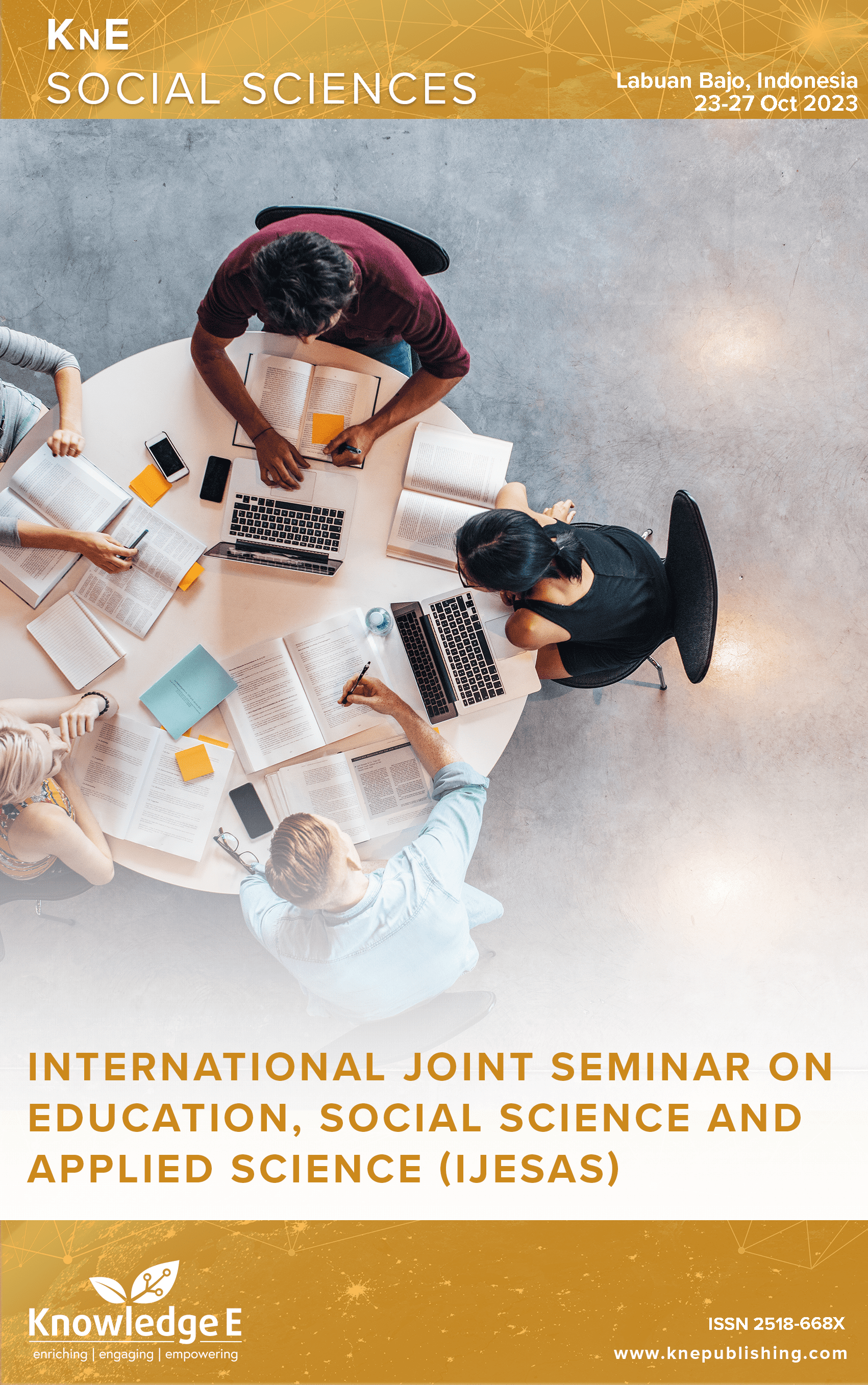Counteracting the Negative Impact of Digital Technology through Strengthening Digital Citizenship Competencies as a Form of Strengthening the Values of Defending the Nation of the Young Generation
DOI:
https://doi.org/10.18502/kss.v9i19.16508Abstract
Threats from negative impacts of digital technology can damage the integrity and sovereignty of the Indonesian nation. This is due to the very rapid development of digital technology. One of the threats is the spread of fake news, hate speech, and digital crime, which disturb the public. The threat of negative impacts from digital technology must be handled seriously because it makes people anxious. Today’s young generation is often found to be victims of the negative impacts of using digital technology. This happens because many young people use digital technology in their daily lives without adequate digital knowledge and skills. Therefore, attitudes and actions are needed to counteract the negative impacts of digital technology by strengthening digital citizenship competencies. The method used in this research involves literature review data collection techniques, using relevant sources, both national and international articles, and then compiling data related to the problem. Defending the country in the digital era involves strengthening digital citizenship competencies, which include digital skills, digital ethics, digital culture and digital security. Strengthening digital citizenship competencies is crucial as a form of defending the country and counteracting the negative impacts of the use of digital technology.
Keywords: defending the country, digital, young generation
References
Darmawan C. Mengasah keterampilan sosial politik dan bela negara generasi muda. Bandung: Putra Anugerah Media; 2021.
Alessandro Brolpito, Digital skills and competence, and digital and online learning., 2018.
Nastiti F, Abdu A. Kajian: Kesiapan Pendidikan Indonesia Menghadapi Era Society 5.0. Edcomtech Jurnal Kajian Teknologi Pendidikan. 2020;5(1):61–6. DOI: https://doi.org/10.17977/um039v5i12020p061
C.E. Suharyanto, “Analisis Berita Hoaks Di Era Post-Truth: Sebuah Review.,” Masyarakat Telematika Dan Informasi : Jurnal Penelitian Teknologi Informasi dan Komunikasi. vol. 10, no. 2, p. 37, 2019. https://doi.org/10.17933/mti.v10i2.150. DOI: https://doi.org/10.17933/mti.v10i2.150
Wermiel S. The Ongoing Challenge to Define Free Speech. Law Reviews & Other Academic Journals. 2018;43(4):82.
Davidson T, Warmsley D, Macy M, Weber I. “Automated hate speech detection and the problem of offensive language.,” Proceedings of the 11th International Conference on Web and Social Media, ICWSM 2017. no. Icwsm, pp. 512–515, 2017. DOI: https://doi.org/10.1609/icwsm.v11i1.14955
de Gibert O, Perez N, García-Pablos A, Cuadros M. “Hate Speech Dataset from a White Supremacy Forum.,” 2nd Workshop on Abusive Language Online - Proceedings of the Workshop, co-located with EMNLP 2018. pp. 11–20, 2018. DOI: https://doi.org/10.18653/v1/W18-5102
MacAvaney S, Yao HR, Yang E, Russell K, Goharian N, Frieder O. Hate speech detection: challenges and solutions. PLoS One. 2019 Aug;14(8):e0221152. DOI: https://doi.org/10.1371/journal.pone.0221152
Aghatise EJ. “Cybercrime definition.,” Computer Crime Research Center. vol. June, no. 28, p. 2006.
Deora RS, Chudasama DM. Brief Study of Cybercrime on an Internet. Journal of Communication Engineering & Systems. 2021;11(1):1–6.
Ribble MS, Bailey GD. Digital Citizenship Focus Questions For Implementation. Learn Lead Technol. 2004;32(2):12.
Hollandsworth R, Donovan J, Welch M. Digital citizenship: you can’t go home again. TechTrends. 2017;61(6):524–30. DOI: https://doi.org/10.1007/s11528-017-0190-4
Xu S, Yang HH, MacLeod J, Zhu S. Social media competence and digital citizenship among college students. Convergence (London). 2019;25(4):735–52. DOI: https://doi.org/10.1177/1354856517751390
van Laar E, van Deursen AJ, van Dijk JA, de Haan J. “Determinants of 21st-Century Skills and 21st-Century Digital Skills for Workers: A Systematic Literature Review.,” SAGE Open. vol. 10, no. 1, p. 2020. DOI: https://doi.org/10.1177/2158244019900176
X. Fang, D.T.K. Ng, J.K.L. Leung, and S.K.W. Chu, A systematic review of artificial intelligence technologies used for story writing., 2023. https://doi.org/10.1007/s10639- 023-11741-5.
Kopecký K. Czech Children and Facebook - A quantitative survey. Telemat Inform. 2016;33(4):950–8. DOI: https://doi.org/10.1016/j.tele.2016.02.008
Falloon G. From digital literacy to digital competence: the teacher digital competency (TDC) framework. Educ Technol Res Dev. 2020;68(5):2449–72. DOI: https://doi.org/10.1007/s11423-020-09767-4
Manjikian MM. From global village to virtual battlespace: the colonizing of the internet and the extension of realpolitik. Int Stud Q. 2010;54(2):381–401. DOI: https://doi.org/10.1111/j.1468-2478.2010.00592.x
Firdaus F, Abdulkarim A. “The Life Skills and Careers of Citizens in the Digital Age of Pancasila and Citizenship Education Curriculum Content.,” Proceedings of the Annual Civic Education Conference (ACEC 2021). vol. 636, no. Acec 2021, pp. 107– 111, 2022. DOI: https://doi.org/10.2991/assehr.k.220108.019
Dewi DA, Hamid SI, Annisa F, Oktafianti M, Genika PR. Menumbuhkan Karakter Siswa melalui Pemanfaatan Literasi Digital. Jurnal Basicedu. 2021;5(6):5249–57. DOI: https://doi.org/10.31004/basicedu.v5i6.1609
Nguyen VT. The perceptions of social media users of digital detox apps considering personality traits. Educ Inf Technol. 2022;27(7):9293–316. DOI: https://doi.org/10.1007/s10639-022-11022-7
Purwasih JH, Widianto AA. “Indication of Radicalism: Students’ Perceptions on Pancasila in the Digital Era,” vol. 404, no. Icossei. 2020;2019:137–41. DOI: https://doi.org/10.2991/assehr.k.200214.023

